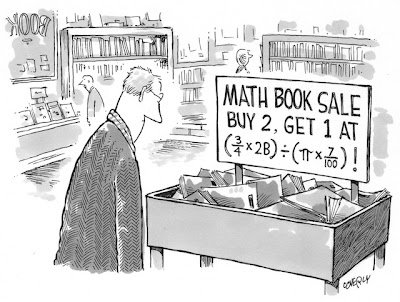I noticed a story on BBC News today (my wife and I used to live in the UK, so we are attuned to the issues there). UK supermarkets are as brutally competitive as the stores here in Southern California, and the BBC story compared 4 big chain stores. Asda, Morrisons, Sainsbury's and Tesco each have their own strategy to catch your attention, build loyalty, and get you to open your wallet:
- Tesco gives you vouchers if their food is more expensive than Asda, when you prove it using their Price Check online.
- Sainsbury's automatically gives you a voucher at checkout if any brand-name item would have been cheaper at Tesco or Asda. They do the research.
- Asda supplies a voucher if their prices are not 10% cheaper than Tesco, Asda or Morrisons when you use their Price Guarantee software online or via mobile phone app.
- Morrisons is taking the high ground and trying to focus on offering good food from local suppliers.
Can they all (at the same time) be the cheapest place to do your shopping?
"Yes," says Peter Lunn, an economist in Dublin, Ireland, "because we are drawn to discounts."
When you come out of a supermarket, you will have a cart full of discounted items. Your combination of items at that store will probably cost less than the same combination in a another supermarket.
However, if you'd gone to the competitor's store for their discounts, the resulting unique combination of stuff which you would assemble there will probably be cheaper than at the first store.
When researchers study a "standard cartful" of groceries (and unlike you and me, ignore all the special offers) the total prices vary by only about 3%. Asda (owned by Walmart) was cheapest.
But each of us buys different things, and many grocery items are bought due to a sale, regardless of we intend to buy when we go to a store. We only enjoy buying things that seem reasonable or cheap to us. We avoid the expensive items, or get them elsewhere.
Imagine the frustration of managers at a supermarket that drops its prices, pulls in more customers, and yet still falls behind in total sales to the competition. That happened to Tesco this year. One analyst said, “With more products available for less, the amount of cash taken has understandably dropped, despite Tesco having successfully attracted more shoppers. They call this strategy self-imposed deflation."
Why do they do it? To attract and (hopefully) retain customers for the long term.
That's exactly why we at Excel Math keep our curriculum prices low - after trying some tricky marketing ourselves,
 |
| Discount pricing formula courtesy of Dave Coverly at Speed Bump Cartoon! |
we've found that special sales prices don't always work!




